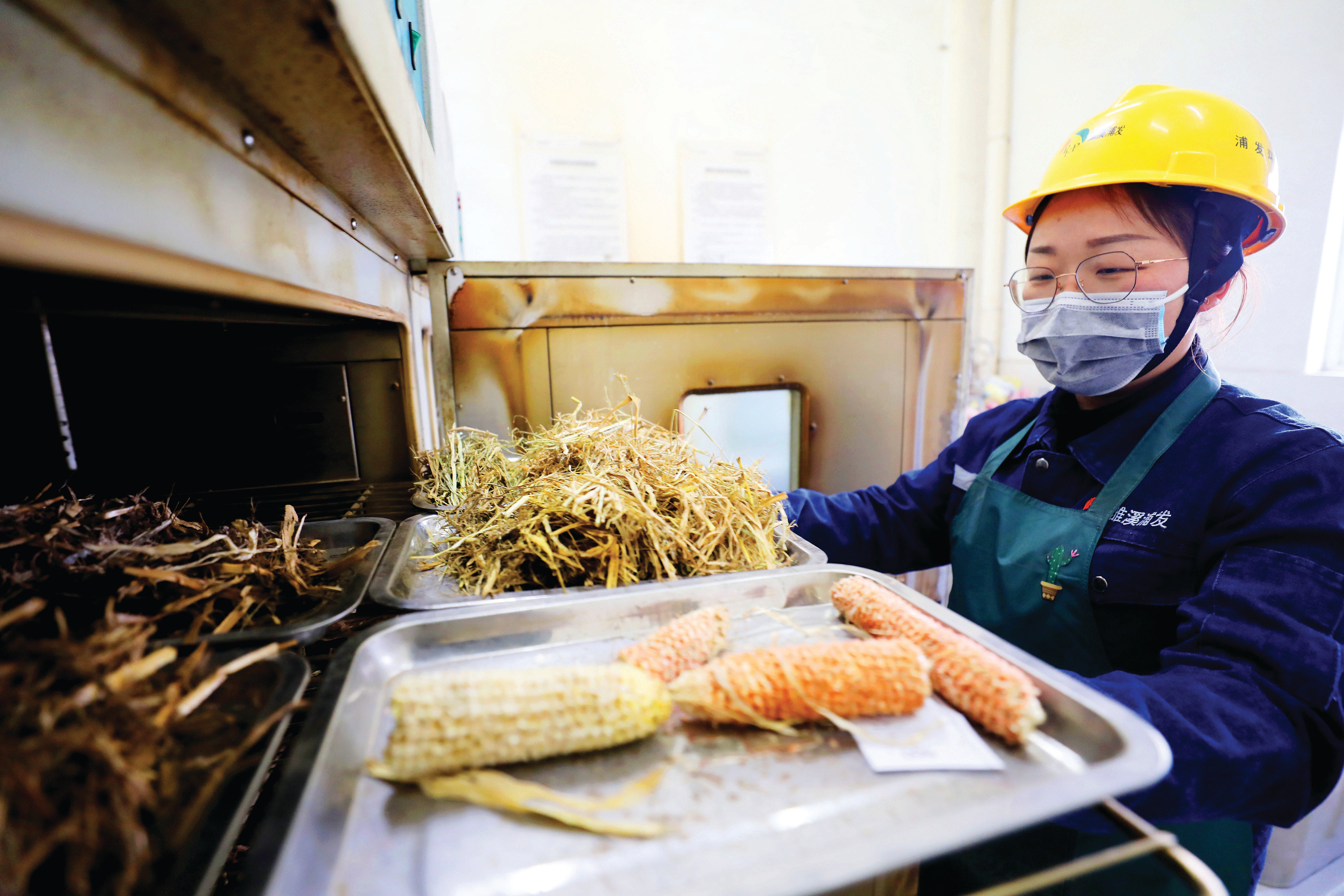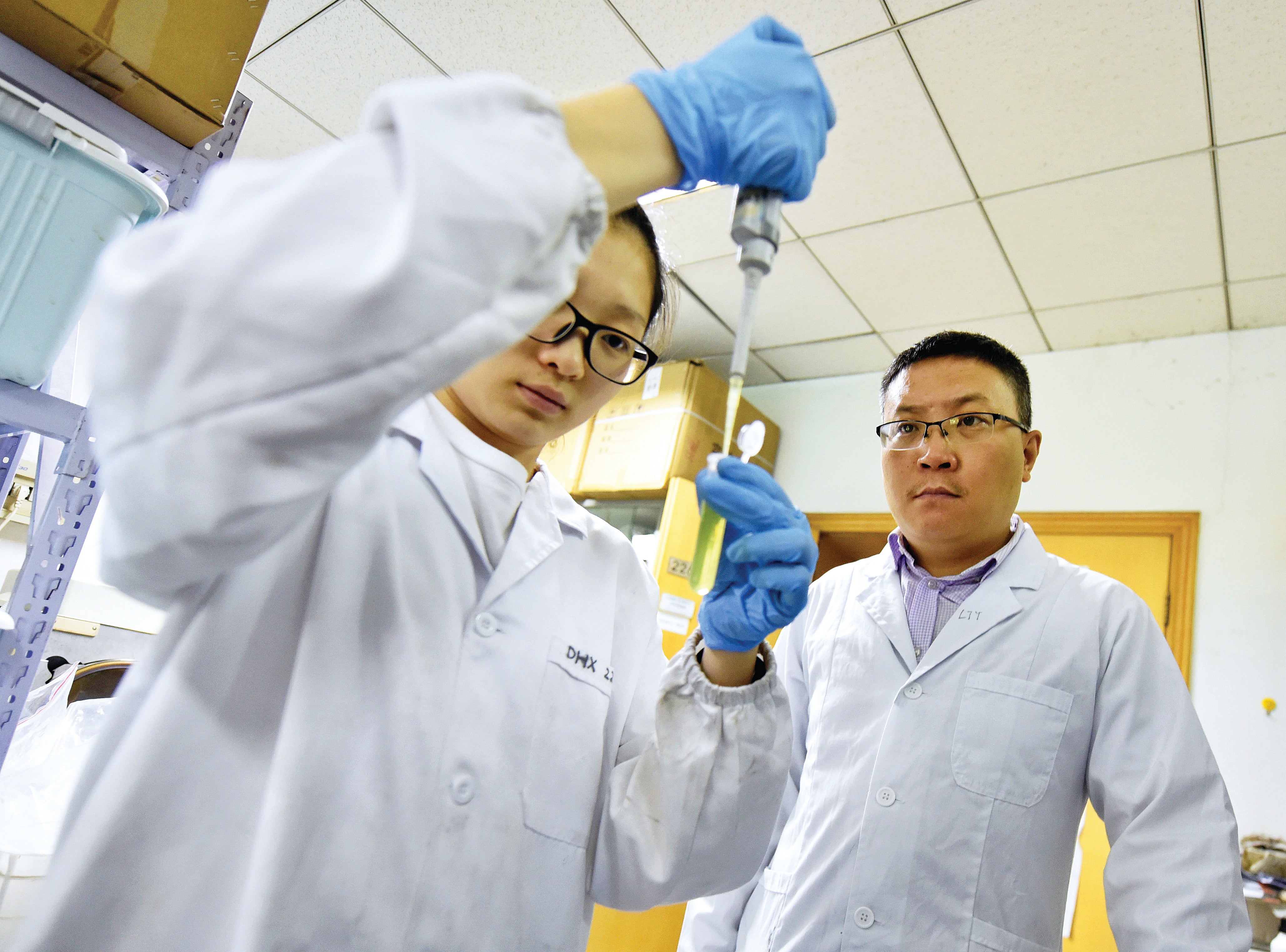Biomass grows as viable energy source
THE ARTICLES ON THESE PAGES ARE PRODUCED BY CHINA DAILY, WHICH TAKES SOLE RESPONSIBILITY FOR THE CONTENTS

Do kitchen leftovers and pet droppings always belong in the garbage? Surprisingly, such organic waste may soon be an important energy source to heat your home or power your car.
Organic matter such as vegetable scraps, wood and animal waste is classified as biomass, and it can be used as an energy source to produce electricity or heat through burning, bacterial decay, fermentation or conversion to gas or liquid fuel.
The development of biomass energy is being sped up in China, where it is becoming a focus for investment as the country intensifies its effort to produce clean energy and cut reliance on fossil fuels under the country’s green commitments.
Use of biomass to produce electric energy in China during the first half of this year was the equivalent of 78 billion kilowatt-hours, an amount 26.6 per cent higher than in the same period last year, the National Energy Administration said. Newly installed capacity for biomass power generation reached 3.67 million kW during this period, the administration said.
Last year China said it would reach peak carbon emissions by 2030 and carbon neutrality by 2060.
Zhang Dayong, secretary-general of the Biomass Energy Industry Promotion Association, said the country’s green goals provide many opportunities for growth of clean sources of energy such as biomass.
As a carbon-neutral fuel, biomass releases the same amount of carbon into the atmosphere when burned as it absorbed during the biomass sources’ life cycle, Zhang said.

“If equipped with carbon capture and storage technology, the process of turning biomass into energy can achieve negative emissions.”
Developing biomass energy is beneficial to the environment and China’s energy structure in several ways, Zhang said.
“Compared with other clean energy sources, biomass materials are widely available and easy to access. In addition, development of biomass fuels can reduce reliance on fossil fuels and reduce waste in landfills.”
A recent report by the biomass association says that about 3.49 billion metric tonnes of biomass is produced in China each year, which can potentially produce the energy equivalent of about 460 million tonnes of coal, but with far fewer emissions. It predicts that with the industry’s rapid development, China’s annual production of biomass will reach nearly 3.8 billion tonnes by 2030 and more than 5.3 billion tonnes by 2060.
Despite plentiful biomass material in China, only a small portion is turned into energy, and the share of biomass in the energy picture remains relatively low compared with other renewable energy sources, the association report says.
Major sources of biomass in China include waste from agriculture, forestry, industries, animal manure and sewage, and municipal solid waste.
While the largest contributing sources are estimated to be residue from crop production such as wheat straw, much of the straw and stalks are now used for cooking and heating in rural households at low efficiencies, said BioEnergy Consult, an international consulting service provider in Aligarh, India, in the waste-to-energy sector. Therefore, agricultural and forestry residue along with garden waste were found to be the most cited resources for energy production in China, it said.
Given that the cost of transportation and storage of farm waste is still high, many farmers would rather burn straw and crop waste for home heating or haul agricultural residue directly to landfills, than selling them to power plants to produce energy, said Lin Boqiang, head of the China Institute for Studies in Energy Policy at Xiamen University in Fujian province.
Zhang of the Biomass Energy Industry Promotion Association said efforts are needed to set up a unified industry standard in terms of emissions when burning biomass, a mechanism of biomass collection, storage and transportation, and regulations for biomass-fuel-processing factories, now lacking in the industry and thus hindering its development.
Previously published on Chinadaily.com.cn
